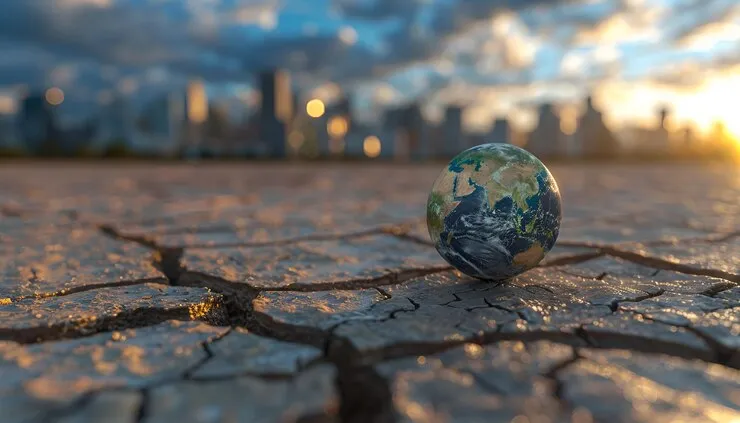Everything has its Ripple effects. Even infinitesimal changes when compound over a long period of time will certainly add up. There has been a massive global financial disruption and imbalances. This is something we have most times addressed to government activities to balance either their financial records or perhaps loot the system. There was a world bank release or actually a warning that in 2050, climate change can lead to a 10% global GDP reduction. This of course is no good news when looking at how the financial market is facing lots of uncertainties.
There are many sectors that I would love to touch about climate change effects but this article will center most on the financial markets. One sector that always faces that full time bleeding effect is the real estate markets. Before delving deeper we need to have a glimpse of what actually stems from the global inconvenience. As I will always advise, any little effort one can contribute to safeguard this Earth of ours will be very appreciating, unless you wish to join Mr Elon on Mars very soon. Hahaha, even with that, do well to leave it at a safe shape for the remaining occupants.
While climate change can be attributed to both man and nature, I will from my views say man has had the upper hand in triggering its effects. Carbonization, deforestation, oil spillage, weakening of the earth through bombing and hard chemicals add up to the list. I once came across a fact post that said 'murder rates rise in summer' and I couldn't doubt this. Maybe the phrase 'hot tempered' was coined from here. Of course this is much of weather changes due to season yet if we are to view this in a global span of climate change we could say, 'climate change leads to inconvenience, inconvenience leads to action and actions leads to financial downtrends'.

source
The battle for survival and resources has sometimes stemmed from climate changes. When viewing why wars and rumors of wars are coming up is because there is more of a struggle for land, agricultural produce, water and other resources because climate has led to a shift of such abundance in some areas. When looking at countries which are facing high climate changes like Afghanistan, DR Congo, Mali, Yemen and the rest you can observe one similarity spanning across these countries. Maybe you've not noticed, but ALL these countries are involved in one conflict or the other. As I earlier said, the competition for the best resources, fertile land and water especially is leading to broader fight. This effect is spreading damage in the financial market.
Uncertainties and skepticism
We saw the market die down some months ago when the Israel-Hamas conflict was at its peak. It affected financial markets, to be even more precise, Bitcoin and altcoin cryptocurrencies investors were part of the victims. The market has always been about who gets the information early and this led to big institutions and whale investors pulling out for safety reasons. We saw an inevitable liquidation, it was something we were not expecting especially during the bitcoin halving season. Aside from history of the conflict backdated to the 20th century, you need to make a research of the natural resources that are dominant in that area, one of them is underground water.

source
Droughts, volcanic eruptions, wild fire and flood add up to deter the financial markets. There has been a massive disruption in the food industry as the agricultural sector is left to face some financial crisis. There is an over $15 billion loss annually related to extreme weather issues according to data by the United Nations' Food and Agricultural Organization. Food shortages trigger inflation and this has often shrunk financial markets through unexpected volatilities. Inflation always triggers a survival strategy, this is something I have seen even in my very country. Small investors are becoming more concerned on external expenses rather than sticking funds in the market.
insurance companies are suffering the climate losses, reports by Swiss Re, in 2020 estimated an annual $300 billion. infrastructure just as expected is leading the charge. World bank reports in 2018, showed a $1 trillion annual loss. Another area to look at is how it also add losses to tourism. Some analysis has put tourist loss to range yearly between $28-$32 billion. These losses indeed have been a driver of market liquidations. The effects attached to climate losses are becoming very challenging and calls for both individual ecosystems and government intervention. Safeguarding financial values will also stem from curbing at least to some point the rate of climate change influences. Let's start from man made issues relating to climate.
To conclude let me add, the issue of climate changes needs to be addressed to secure the health of financial markets. There have been a lot of losses globally as resources continue to face damages. Looking into the future should this issue persist I think the health of global investing will be deterred. In the absence of investors, we are looking at slow development especially in under-developed countries and is very concerning. We need a fast spread of development which will trigger tech advancement leading to a much easier life in entirety.
